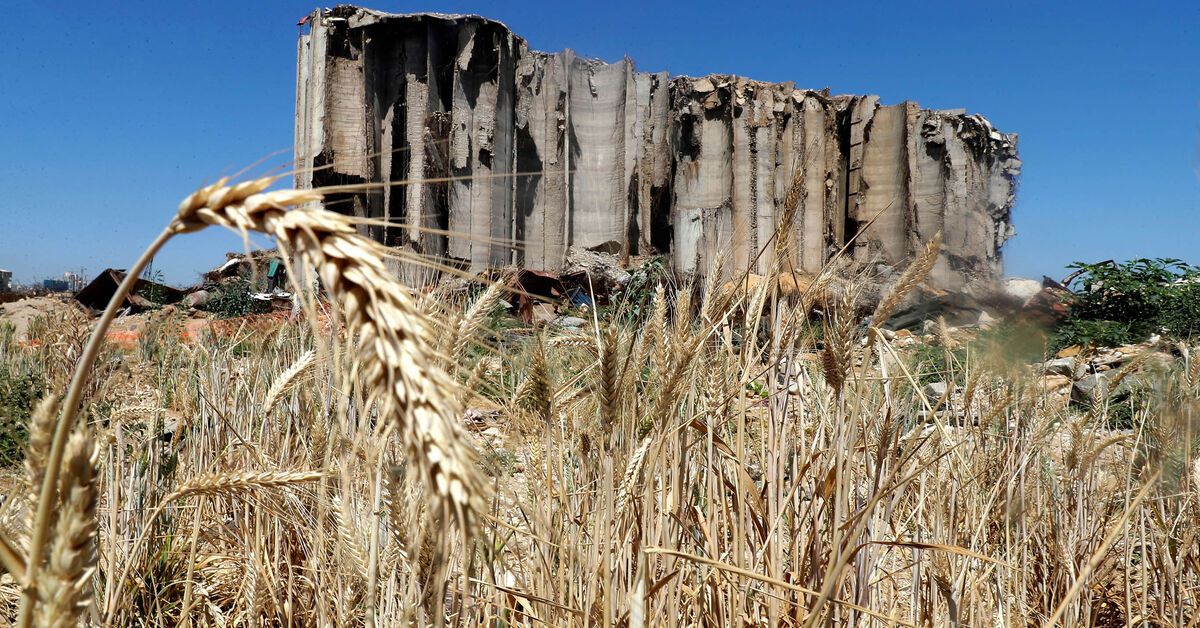Contributors: Amin Ghobar, Basilio Diaz, Daniel Raidan, Sally Harb, Stephany Said, and Wissam Malaeb.
Wheat Supply and Food Insecurity in Lebanon
A principal element to boost food security in developing countries is matching the demand for wheat as it is one of the world’s most crucial staple crops. Lebanon, with almost 46% of its households being food insecure, imports around 80% of its food needs and is highly dependent on soft wheat to make Arabic flatbread.
Due to the crippling economic crisis in Lebanon, the diminishing foreign reserves to subsidize wheat imports, the Beirut Port Blast that led to the destruction of the grain silos, and the Russian invasion of Ukraine that had an effect on the supply chain and the wheat prices, Lebanon has been struggling with a negative wheat supply shock.

Lebanon’s Current Situation and the Effects on Wheat Resources and Supplies
The country is facing one of the most devastating economic crises globally since the mid-19th century. The Lebanese currency’s more than 90% value loss against the US Dollar, the inflation rate that exceeded 200%, and the grain reserves lost after the destruction of the Beirut Port – that stored around 85% of the country’s cereals with a maximum capacity of 120,000 metric tons of grain – contributed to the problem at hand. Additionally, Russia and Ukraine supply Lebanon with 70% – 80% of its wheat demand. After the invasion, wheat prices increased drastically and Lebanon, a bankrupt country, was unable to fight in the bidding war.
Moreover, the smuggling of subsidized flour and wheat to the Syrian market and the need to fulfill the nutritious needs of the 1.3 million Syrian refugees on the Lebanese grounds made the food security response an immediate priority.
In terms of Lebanon’s agricultural nature, the country relies on the import of wheat because available land that is viable for farming is not enough to meet the country’s demands and make Lebanon self-sufficient. The consumption demand in Lebanon is topped at 450,000 metric tons, and local wheat production only produces around 10-15% of such demand.
Lebanon needs to start implementing short-term and long-term fixes as the citizens are grappling to afford the increasing prices of bread in a country with a limited number of reserves.

Therefore, we came up with solutions that are divided into two levels of fixes
Short-term Fixes
Pursue avenues to continue subsidizing the price of bread. An example of that would be the “Lebanon Wheat Emergency Response Project” where a $150 million loan from the World Bank was taken that will be used in funding the imports for approximately six to nine months.
Long-term Fixes
Support farmers and develop irrigation programs to help increase local production of the wheat market up until it makes up 50% of Lebanon’s total supply. However, Lebanon can only have a 10% to 15% increase every year according to a study done by the Ministry of Agriculture. This means that it could take 5 to 6 years to reach the goal stated above.
In addition to that, rebuilding Lebanon’s national grain reserve by reconstructing the Beirut port silos and building two new storage silos nearby is another solution. This would cost $100 million and would create six months’ worth of reserves at any given time. Many countries have shown interest in helping Lebanon build those.
Finally, turning to the Ministry of Agriculture’s large and rent-free warehouses in Beqaa should be considered, as the government has been relying on private mills for storage which keeps storage levels on a day-to-day basis and paves the way for black markets. These warehouses only need some maintenance and would be ready for use.

0 Comments